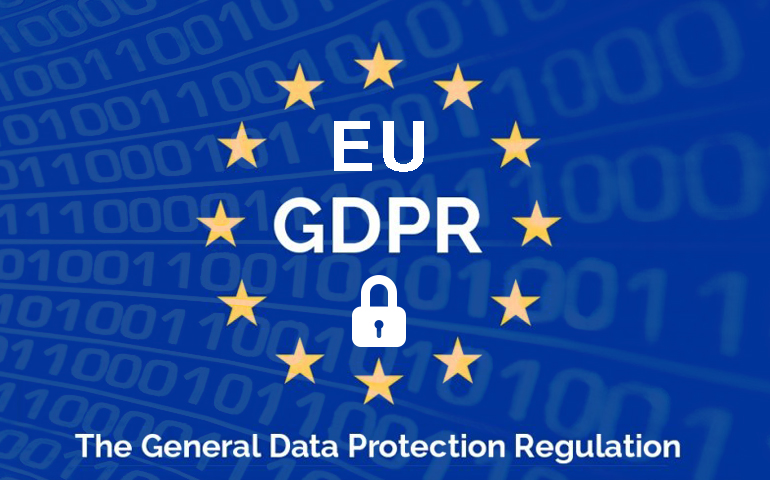The Internet has changed the way we communicate, how we handle everyday tasks, and send and receive data digitally. We send emails, documents, pay bills, and purchase goods by giving away our crucial details online without a second thought. Sensitive information like bank details, contacts, addresses, social media posts, and even IP address and the sites that you’ve visited are all stored digitally.
With the continuing growth of utilizing data in the tech industry, it is also essential to secure the data shared by the users. There must be a validation to use their data appropriately for companies that work with data all the time. Protecting user data is crucial to help prevent cybercrimes, fraud, or identity theft by ensuring details of users are treated as valuable assets.
Protecting data with the EU GDPR
Having a good privacy policy is essentially a commitment to your customers. It means your customers can trust you to treat their personal data appropriately.
GDPR that is set to be enforced on May 25, 2018, requires organizations to get affirmative consent from any user for any information they gather on you. The GDPR act contains a set of principles that organizations, governments, and businesses have to adhere to in order to keep user data safe, secure and lawful. The GDPR not only applies to organizations located within the EU but to all companies processing and holding personal data of users residing in the European Union, regardless of the company’s location.
Top data companies like Google, Facebook, Amazon, and Microsoft, along with all tech companies worldwide, will be required to restructure many of their policies and procedures in order to become GDPR compliant before its implementation.
Breaking the law will cost companies 4% of global revenues or 20 million Euros.
Companies that adhere to GDPR are required to identify what personal data they have and where it is stored. They also need to manage how personal data is used and accessed, establish security controls to prevent, detect, and respond to vulnerabilities, execute on data requests, report data breaches, and keep required documentation.
It requires tech companies to protect the data while they have it and delete it when they no longer need it. Concisely, users should know they can trust the brand with their personal information. Companies have to be able to prove that users agreed to a certain action, for example, receiving an email or a newsletter. They are not allowed to assume or add a disclaimer, and providing an opt-out option is not enough.
How GDPR changes the app development process
Being in the tech development world, we know how essential data is to technology providers. And by abiding to data privacy and business ethics, we all have to become more diligent about what data we collect, how we collect it, and what we do with it.
While talking about app development, implementing GDPR will not only enhance data security but will also help companies to streamline the entire data collection process. Whatever programming language we work on or app we create, GDPR requires us to be more structured and transparent about how we conduct certain data-related activities. This entirely implies that if we do business in Europe, or collect data on European users, we must protect their data in full accordance with the regulation.
- The European security overhaul will give users the power to make data handlers and app developers delete their personal information and sensitive data.
- If an application needs to save personal information, the data should be encrypted with proper encryption algorithms. The details from the contact us form must be encrypted instead of recording it in plain text.
- Privacy by Design: for the entire development lifecycle, app creators must implement measures that restrict the preventable flow of user data and can only use information that is specifically required to complete the app. Privacy by Design is about anticipating, managing and preventing privacy issues before a single line of code is written.
- It is necessary to enforce secure communications via HTTPS. Also, it is equally important to make sure that the SSL certificate has been properly deployed and is not exposed to vulnerabilities related to SSL protocols.
- The logs should be encrypted and the users must be informed about how the information stored in those logs will be used.
- In several apps, security questions are used as a confirmation of the identity of a user. These questions should not include personal components such as mother’s maiden name or even the user’s place of birth.
Our take on GDPR and security approach
We extensively work with data. We treat client data with utmost importance and adhere to securing it. We thoroughly understand that data must be used fairly and lawfully, and for specifically stated purposes. We are fully aware of where sensitive data is stored and who has the right to access it.
Being transparent and accountable
Softweb Solutions is committed to helping our customers and partners by protecting and respecting personal data, no matter where it comes from or where it flows. We are committed to comply with regulations and our own corporate code of conduct by establishing perennial security, data protection, and privacy standards.
Security measures
We make sure to maintain different security levels and inventory system components in our network. We control all the physical access for onsite personnel to sensitive data. To ensure all the security measures are in place, we document security policies and operational procedures for monitoring all access to network resources.
Conduct regular security testing
Softweb Solutions tests and acts upon vulnerabilities found during data penetration testing. Our alert system notifies the security personnel in case of unsanctioned modifications.
Due diligence
We have an established process for engaging service providers, including proper due diligence prior to engagement. We monitor service providers’ compliance status periodically and maintain information about data protection requirements managed by each service provider and Softweb Solutions respectively.
Understanding regulatory requirements
Harmonizing data privacy protection across different jurisdictions around the world requires a mature data privacy practice that aligns with regulatory requirements. Softweb Solutions values user privacy by being transparent about how their data is used. We implement improved ways of managing customer data throughout its life cycle to build deeper trust among loyal customers.
We are working on gap analysis to fully understand and implement GDPR into our business practices. We raise awareness within different departments as to what is expected of our employees, at every point in the journey.
The General Data Protection Regulation is aimed at giving EU citizens better protection over their personal data and by adhering to it, app development companies will have to keep customer’s information safe by following the protocols to obtain, transfer, store and handle data.









